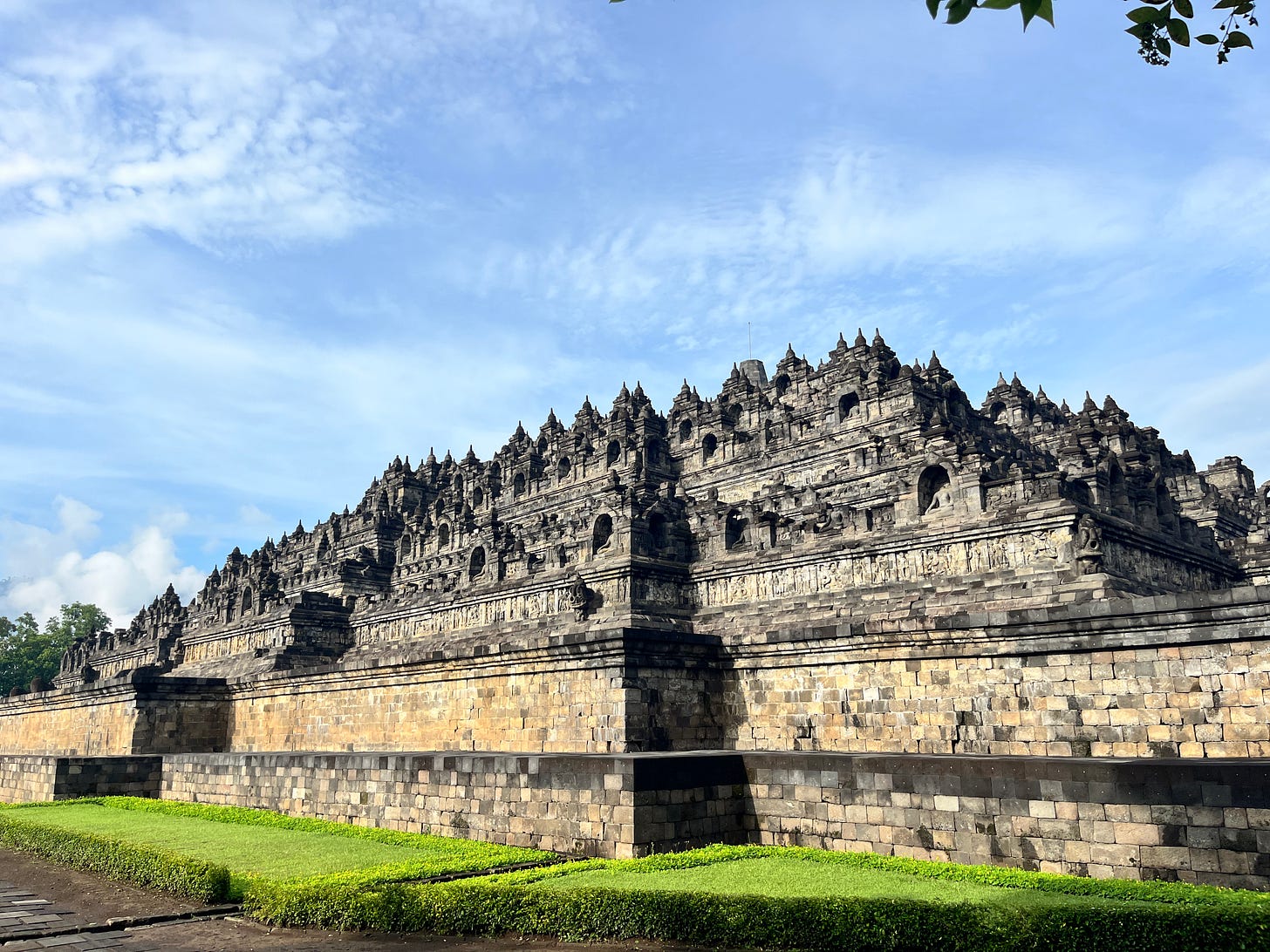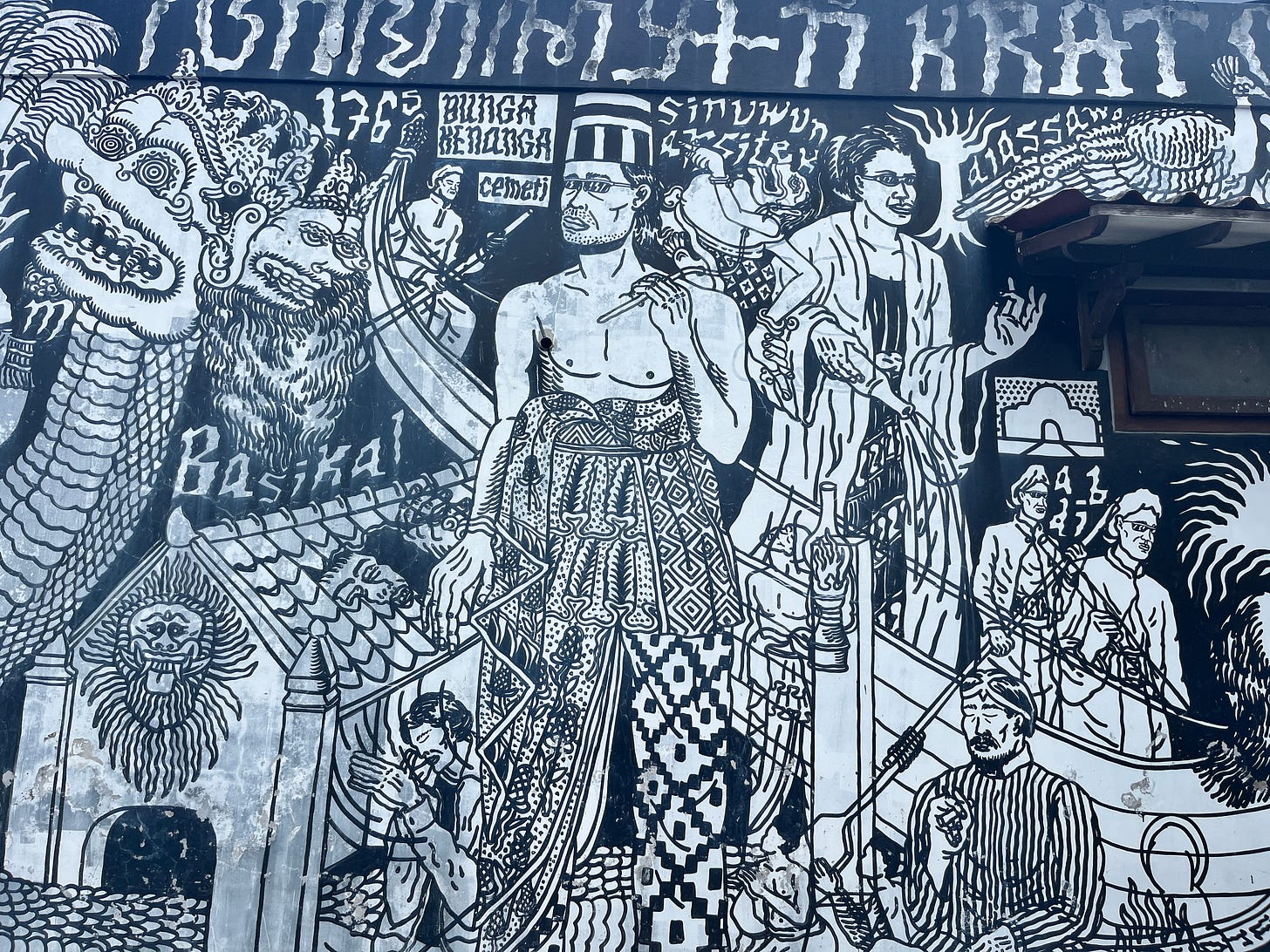Dear friends,
No place I’ve traveled excites me quite like Indonesia. Politically, historically, environmentally…The world’s largest archipelago is made up of more than 17,000 islands bursting with energy.
It was also the trickiest place to move around. To travel from island to island took various combinations of ferries and flights, but despite internet rumors, I didn’t have one delay, and the service was lovely.
Indonesia is the fourth most populous country in the world, with the seventh largest economy when it comes to GDP, based on purchasing power parity.
Yet, I rarely hear about it on the news at home. Unless someone mentions a vacation to Bali, friends and acquaintances don’t have much to say about the massive island nation.
However, we owe much of modern democracy movements to Indonesia’s revolution for independence.
While in Yogyakarta, our free walking tour guide told us about the history of the Revolusi, Indonesia’s fight for liberation after WW2.
It would be impossible to cover the story in a single email, so for more information, check out Revolusi by David Van Reybrouck.
“What makes the Revolusi so fascinating is its enormous impact on the rest of humanity. It shaped expectations about the nature of decolonization: not a gradual, decades-long process of increasing autonomy, but a swift transition to independence.
Not limited to one small portion of the colony, but affecting the entire territory. And not restricted to a few specific powers or ministries, but constituting a complete transfer of political sovereignty.
Fast, comprehensive, and complete: that was the model forged in Indonesia and actively pursued in many other parts of the world in the decades that followed.”
~Van Reybrouck via LitHub
What we learn from Indonesia is young people led the charge. They did it swiftly, they did it without vast resources. They organized, and they won.
“It was an entire generation of people between age 15 and 25 who basically became the masses that were calling for independence with an impatience and with an energy that was not to be seen anywhere else.
And were it not for this younger generation, the whole decolonization process might have taken decades, if not more.”
~Van Reybrouck via NPR
Of course, this is a simplified narrative with no clear black and white storyline. However, it’s fascinating to see not only the decolonization of Indonesia but how it led to larger liberation movements across Asia and Africa.
What do we learn from the revolution of Indonesia?
I can be cynical about the world most days. However, we know from history that nothing is new under the sun. Despots and oppressive powers come and go. As a collective, we must rise up and end them.
When people band together, not only can they make rapid reforms, this change is inevitable and irrepressible.
Until next week,
Ash











Super interesting Ashleigh. Have you seen The Year of Living Dangerously, quite old now, but very good historically, it seems. I have an Indonesia friend who lived, oddly or not, in Playa del Carmen for many years. We got to know her through bookstore. Her father, a doctor, fled during or before, was it 1968? He placed the family, his wife and 2 girls, in maybe Singapore, until he got a position in Amsterdam, where Winna still lives. She married a gringo whose parents had founded the coolest smallish hotel in Playa. So he grew up in MX along w/ his brother and his mom home schooling him. The hotel was sold some time ago,and now they are in Amsterdam, where she, a psychiatrist who quit to become an artist, and he, a video games creator (who now speaks 3 languages -haha). She was too young to tell me much about that time, but it was so interesting to me that her father was one of the people to be exiled.
Thanks for the book recommendation. Bought it.